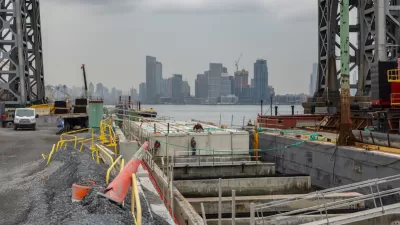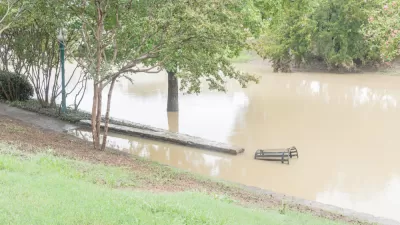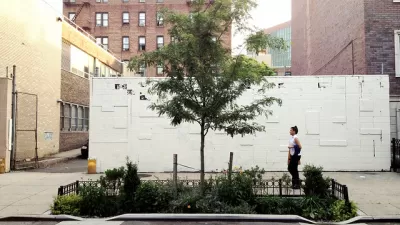We should have seen the historic flooding in the Florida Parishes region of Louisiana coming—both in preparation and in response—says a pair of recent articles.

Craig E. Colton, professor of Geography at the Louisiana State University, pens an article for The Conversation about recent floods in Louisiana. After listing off the damage wreaked by historic rainfall totals, Colton compares and contrasts with an obvious predecessor:
Reports of flooding in Louisiana may conjure up images of Hurricane Katrina, but these rivers are completely separated from the Mississippi River, and these floods posed no threat to New Orleans. Nonetheless, based on my experience studying risk and resilience in this region, I see parallels between the damage of current flooding and the damage caused by Katrina.
According to Colton, human decisions of planning and permitting exacerbated the consequences of this weather event. These areas "had experienced repeat floods, and agencies had failed to complete projects designed to mitigate flood damage before the storms hit."
According to Colton, the Florida Parishes region is a natural laboratory for flood studies. Despite a long track record of flooding, and planning efforts meant to prepare for more, but Colton says that suburban sprawl has nonetheless been allowed to spill onto the floodplain.
While Colton's concern is planning and preparation, a separate Associated Press article notes scathing reviews for the performance of the Federal Emergency Management Agency (FEMA) in the region. U.S. Rep. John Mica (R-FL), who chairs a subcommittee with jurisdiction over FEMA, called the response "pitiful." Mica argues that FEMA needs more flexibility in its programs.
FULL STORY: Suburban sprawl and poor preparation worsened flood damage in Louisiana

Alabama: Trump Terminates Settlements for Black Communities Harmed By Raw Sewage
Trump deemed the landmark civil rights agreement “illegal DEI and environmental justice policy.”

Study: Maui’s Plan to Convert Vacation Rentals to Long-Term Housing Could Cause Nearly $1 Billion Economic Loss
The plan would reduce visitor accommodation by 25% resulting in 1,900 jobs lost.

Why Should We Subsidize Public Transportation?
Many public transit agencies face financial stress due to rising costs, declining fare revenue, and declining subsidies. Transit advocates must provide a strong business case for increasing public transit funding.

Paris Bike Boom Leads to Steep Drop in Air Pollution
The French city’s air quality has improved dramatically in the past 20 years, coinciding with a growth in cycling.

Why Housing Costs More to Build in California Than in Texas
Hard costs like labor and materials combined with ‘soft’ costs such as permitting make building in the San Francisco Bay Area almost three times as costly as in Texas cities.

San Diego County Sees a Rise in Urban Coyotes
San Diego County experiences a rise in urban coyotes, as sightings become prevalent throughout its urban neighbourhoods and surrounding areas.
Urban Design for Planners 1: Software Tools
This six-course series explores essential urban design concepts using open source software and equips planners with the tools they need to participate fully in the urban design process.
Planning for Universal Design
Learn the tools for implementing Universal Design in planning regulations.
Smith Gee Studio
Alamo Area Metropolitan Planning Organization
City of Santa Clarita
Institute for Housing and Urban Development Studies (IHS)
City of Grandview
Harvard GSD Executive Education
Toledo-Lucas County Plan Commissions
Salt Lake City
NYU Wagner Graduate School of Public Service





























